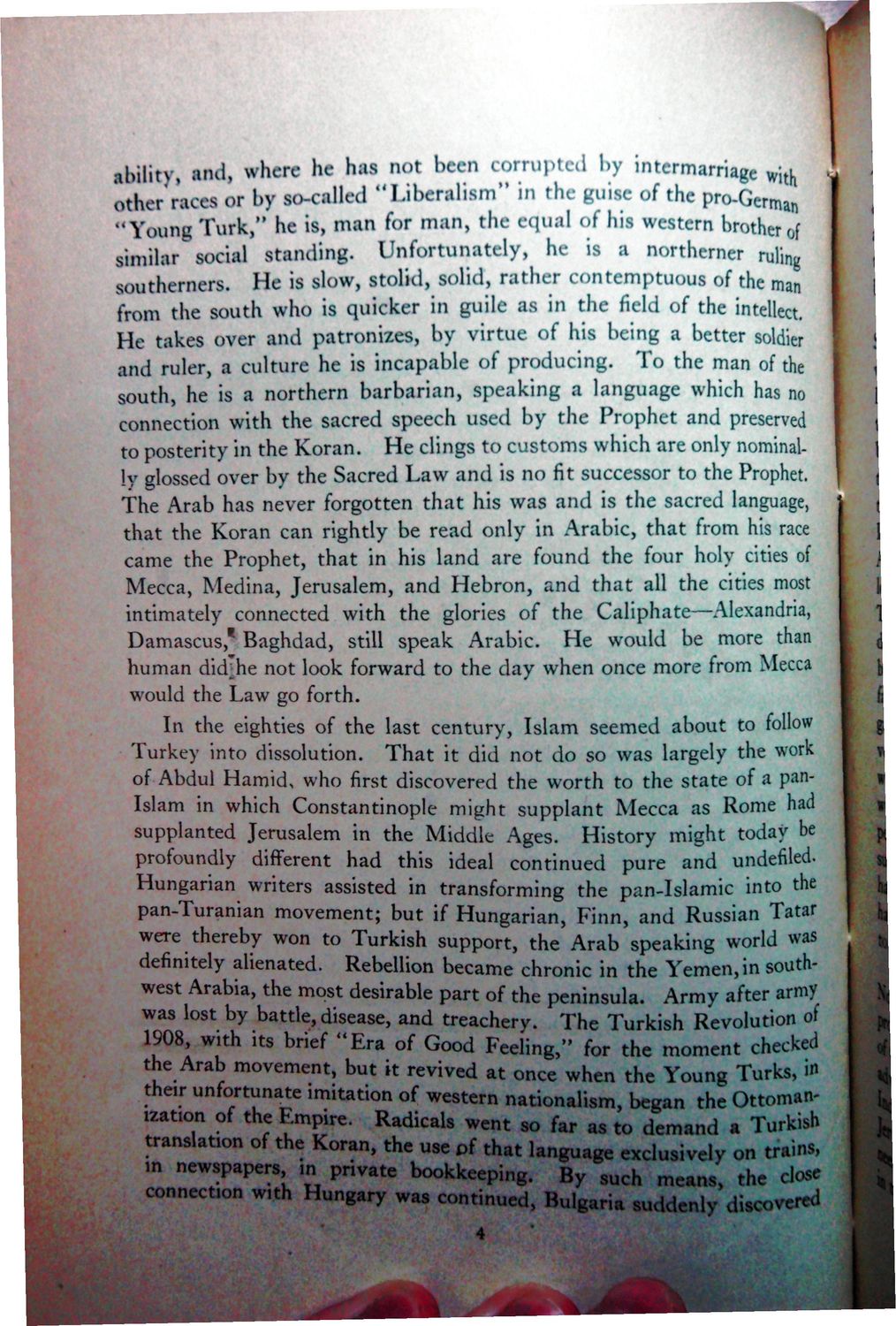| |
| |
Caption: War Publications - WWI Compilation 1923 - Article 19
This is a reduced-resolution page image for fast online browsing.

EXTRACTED TEXT FROM PAGE:
ability, and, where he has not been corrupted by intermarriage Wltll other'races or by so-called "Liberalism" in the guise of the pro-German "Young Turk," he is, man for man, the equal of his western brother 0f similar social standing. Unfortunately, he is a northerner ruling southerners. He is slow, stolid, solid, rather contemptuous of the man from the south who is quicker in guile as in the field of the intellect. He takes over and patronizes, by virtue of his being a better soldier and ruler, a culture he is incapable of producing. To the man of the south, he is a northern barbarian, speaking a language which has no connection with the sacred speech used by the Prophet and preserved to posterity in the Koran. He clings to customs which are only nominally glossed over by the Sacred Law and is no fit successor to the Prophet. The Arab has never forgotten that his was and is the sacred language, that the Koran can rightly be read only in Arabic, that from his race came the Prophet, that in his land are found the four holy cities of Mecca, Medina, Jerusalem, and Hebron, and that all the cities most intimately connected with the glories of the Caliphate—Alexandria, Damascus,* Baghdad, still speak Arabic. He would be more than human did;he not look forward to the day when once more from Mecca would the Law go forth. In the eighties of the last century, Islam seemed about to follow Turkey into dissolution. That it did not cio so was largely the work of Abdul Hamid, who first discovered the worth to the state of a panIslam in which Constantinople might supplant Mecca as Rome had supplanted Jerusalem in the Middle Ages. History might today be profoundly different had this ideal continued pure and undefined. Hungarian writers assisted in transforming the pan-Islamic into the pan-Turanian movement; but if Hungarian, Finn, and Russian Tatar were thereby won to Turkish support, the Arab speaking world was definitely alienated. Rebellion became chronic in the Yemen,in southwest Arabia, the most desirable part of the peninsula. Army after army was lost by battle, disease, and treachery. The Turkish Revolution of 1908, with its brief "Era of Good Feeling," for the moment checked the Arab movement, but it revived at once when the Young Turks, * their unfortunate imitation of western nationalism, began the Ottomanization of the Kmpire. Radicals went so far as to demand • Turkish translation of the Koran, the use of that language exclusively on trains, in newspapers in private bookkeeping. By such means, the close discovered 4
| |